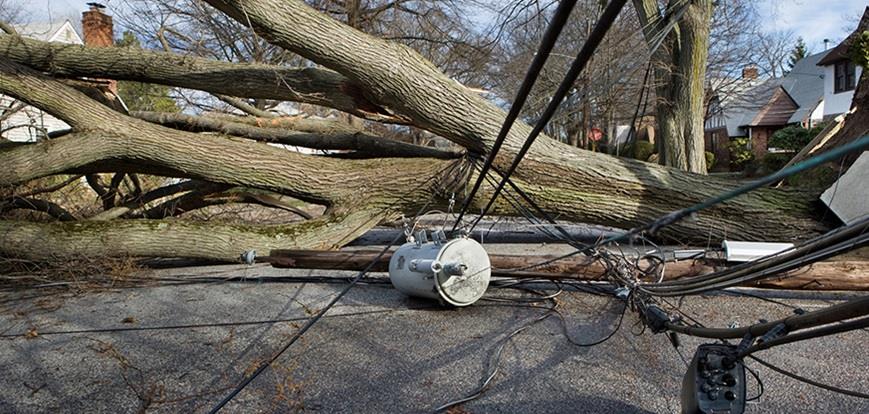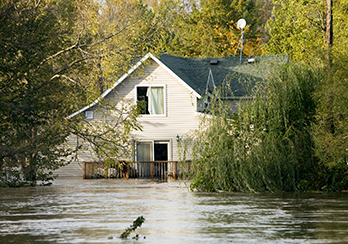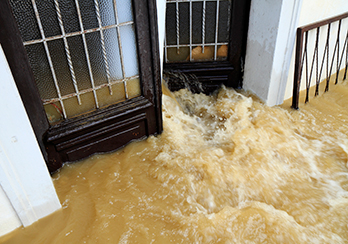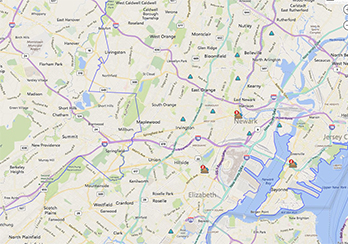After a Storm
Cleaning Up After a Storm
Once the weather clears, it's time to take stock of any damage and make a plan to resume normal life safely and efficiently.
At Home & Work
Storms Leave Quite a Mess Behind
- Avoid downed wires, including wires tangled in trees or bushes. Log in to My Account or call PSE&G at 1-800-PSEG (7734) immediately to report a downed wire. Keep everyone else at least 30 feet away, too.
- Avoid parking near downed wires, if possible, and do not drive over them, either. Even if they aren't energized, they can get tangled in your vehicle.
- Check outside for any damage to your home's foundation. Call a professional if you find major issues.
- Use extreme caution if you're using a generator during a power outage. Keep generators outside, follow the manufacturer's instructions, and never connect a generator to your home's electrical system.
- Use battery-operated lights and flashlights rather than candles, which are a fire hazard.
- Wash your hands frequently and make sure to wear protection - rubber gloves, boots, googles, and a dust mask - to avoid contaminants.
Food Safety
- Keep your refrigerator and freezer doors closed when the power goes out. Unopened refrigerators keep food cold and safe for a few hours.
- Half-full freezers hold food safely for up to 24 hours; full freezers preserve food between 36 and 48 hours.
- Extend food storage by packing milk, dairy products, meats, fish, poultry, eggs, and other foods in a cooler surrounded by ice.
- To determine if the food in your freezer has thawed and re-frozen, store an ice cube in a plastic bag before the power goes out. If the cube melts from its original shape, you'll know power was off for an extended time, and your frozen food isn't safe.
At PSE&G
PSE&G Works 24/7 to Restore Your Power as Quickly and Safely as Possible
When we determine that it is safe to start service restoration, our crews work around-the-clock to restore your power. We focus first on our largest, critical customers: hospitals, fire and police stations, water and sewer facilities, communication organizations (TV, radio, and telephone) and critical care customers dependent on life-sustaining equipment.
How PSE&G Restores Electric and Gas Service After Flooding
Our first concern is the health and safety of our employees and customers. The process to restore service requires coordination with different organizations and contractors.
- We verify with your town that your home/building is safe for occupation.
- Make sure you've cleared the water from flooded areas surrounding your home or building.
- After the water recedes, you must contact your municipality to arrange a property inspection.
- An inspector will assess your meter box and/or gas appliances for damage. A contractor must repair any identified issues.
- After the contractor completes all repairs, you must arrange for a second inspection, and once your home/building passes, the municipality will contact PSE&G to restore service.
Restoring Power to Gas Facilities
PSE&G must follow specific protocols when we restore power to gas facilities after a flood.
- We work with the municipalities to assess the damage and develop a restoration plan.
- First, we turn off the gas facilities to prevent further damage to utility or customer equipment and piping.
- Municipal inspectors verify the water is cleared from basements and electric facilities (electric panel and meter box). Homeowners must call PSE&G to restore gas after their homes pass inspection.
- Our crew will check to make sure your gas piping isn't leaking. If needed, we'll replace meters, service regulators, or regulator vent piping that's been exposed to water.
- We cannot restore gas to water heaters whose controls have been flooded. You must replace flooded units.
- Our restoration policy for gas-fired furnaces and boilers requires that you replace all flooded gas controls, control system parts, and electrical parts to ensure safe operation. We will determine, on a case-by-case basis, if you must replace an entire unit.
Lessons Learned for Future Emergency Responses
Studying past responses to emergency situations is important for future planning. We constantly strive to improve, so we've partnered with the Council of New Jersey Grantmakers and the Center for Disaster Philanthropy to create a resource of best practices and strategies to respond more effectively to disasters.
























